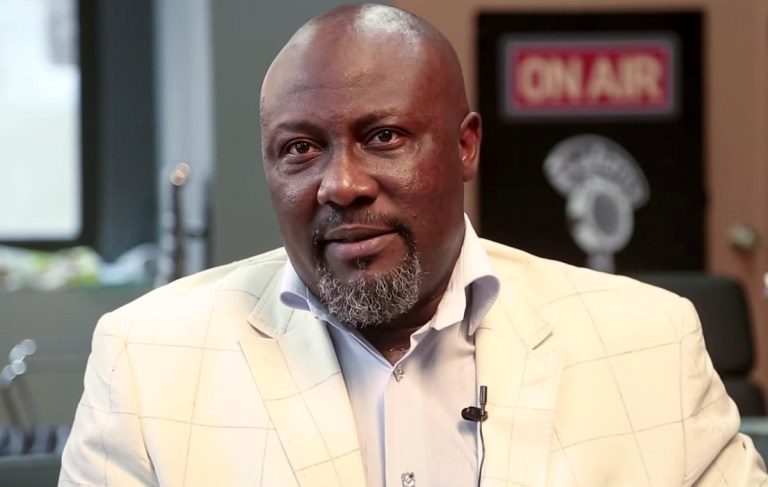PAT ONUKWULI urges Monday Okpebholo to act within the law
In the heartland of Edo State, a chilling declaration rang out like a clarion call for political vigilantism. “There’s a new sheriff in town,” Governor Monday Okpebholo thundered, warning former Labour Party presidential candidate, Mr. Peter Obi, to steer clear of the state without prior security clearance.
His words, uttered in the fiery theatre of a partisan rally, dripped with implied threats: “His security will not be guaranteed… he will have himself to blame.”
Such rhetoric, when wielded by a sitting governor, does not merely overreach; it strikes at the foundational pillars of our fragile democracy.
This was not an isolated gaffe. In April 2025, Benue State Governor Hyacinth Alia issued a similar caution to Mr. Obi, prompting the former Anambra governor to cancel a planned humanitarian outreach.
These coordinated episodes should not be dismissed as partisan banter; they are early tremors of a deepening culture of intolerance that, if left unchecked, could fracture Nigeria’s democratic spine.
At the heart of this political theatre lies a stark and troubling reality: the Nigerian Constitution is being casually trampled. Section 41(1) of the 1999 Constitution is unequivocal: “Every citizen of Nigeria is entitled to move freely throughout Nigeria and to reside in any part thereof.”
That any elected official, no matter how well-meaning or self-assured, would dare suggest otherwise is not only unconstitutional; it is profoundly undemocratic.
The philosophical underpinning of a constitutional democracy is the limitation of power. Thomas Hobbes, in his Leviathan, warned that when power is unchecked, the state becomes a tool of tyranny rather than a shield for the weak.
Governor Okpebholo’s remarks, whether cloaked in the language of security or the bravado of political ascendancy, reek of Hobbesian absolutism. They reduce democratic space to a fiefdom, where the governor’s word supersedes the nation’s highest law.
To suggest that Mr. Obi’s past visit triggered unrest because he donated N15 million is to flirt dangerously with both superstition and scapegoating. It is reminiscent of medieval witch trials, where bad harvests were blamed on village women.
Political violence should be condemned, not weaponised against dissenting voices.
When guardians of the law begin to redraw their lines in the dust of ambition, the republic drifts from covenant to theatre. What begins as a gesture of authority soon mutates into a ritual of exclusion, where presence becomes trespass and silence becomes complicity.
Like Prometheus stealing fire not for light but for dominion, power misused becomes prophecy, foretelling a polity scorched not by wrath, but by the slow, indifferent erosion of what was once sacred.
So let no one mistake the tremors for mere coincidence or random noise; they echo the approach of the 2027 general elections. Mr. Obi remains a symbol of political disruption. In 2023, his Labour Party claimed Edo and came within a whisker of seizing Benue.
In Nigeria’s power calculus, such symbolic victories are more than electoral footnotes; they shake the foundations of entrenched patronage and challenge the dominance of old political orders.
This explains why the reactions of both Governors Okpebholo and Alia feel more strategic than spontaneous. By erecting invisible walls around their states, they are effectively testing the boundaries of federal authority, daring the judiciary and civil society to respond.
Today, it is Mr. Obi. Tomorrow, it could be any citizen deemed inconvenient.
The question must be asked: What kind of democracy allows a sitting governor to issue veiled death threats against a fellow Nigerian and remain unrepentant? What happens when opposition leaders can no longer campaign, organise, or move freely across the federation?
The late sage, Chief Obafemi Awolowo, once said that “the greatest weapon of the oppressor is the mind of the oppressed.”
By normalising these breaches, by rationalising them as mere “security protocols,” we risk eroding not just laws, but the spirit of civic resistance. This is not just about Peter Obi; it is about the future of Nigeria.
It is tempting to treat this as just another episode in Nigeria’s never-ending political drama. But that would be a dangerous abdication of responsibility.
Civil society, opposition parties, the clergy, traditional rulers, and yes, members of the ruling All Progressives Congress, must speak with one voice in condemning this abuse of office.
Political affiliation should not cloud our collective judgment. A governor’s allegiance should first be to the Constitution, not his party. And if APC leaders remain silent, they inadvertently endorse this descent into despotism.
It is noteworthy that Kunle Edun, SAN, a respected legal mind, has called out Governor Okpebholo for violating his oath of office. Human rights activists such as Chidi Odinkalu and Inibehe Effiong have warned of the dangerous precedent this sets.
The Coalition of United Political Parties has described the remarks as a “veiled death threat.” These voices must be amplified, not silenced.
Democracies do not die in one fell swoop. They die slowly, through a thousand paper cuts, through unchecked rhetoric, through the corrosion of norms and the silence of good men.
If governors can declare de facto no-go areas for opposition figures today, what stops them from banning journalists tomorrow or jailing activists the day after?
The late Archbishop Desmond Tutu once observed that “if you are neutral in situations of injustice, you have chosen the side of the oppressor.” Silence now is complicity.
The “new sheriff in town” may indeed hold the reins of power in Edo State, but those reins are not a license for lawlessness.
Authentic leadership is not marked by whom one can bar or banish, but by one’s commitment to justice, fairness, and the Constitution.
Governor Okpebholo must retract his remarks, clarify his allegiance to the rule of law, and demonstrate the maturity expected of the office he holds.
Anything less is an invitation to anarchy. And Nigeria, already teetering on too many precipices, cannot afford to fall off yet another cliff.
Dr. Onukwuli, a legal scholar and public affairs analyst, writes from Bolton, UK.


